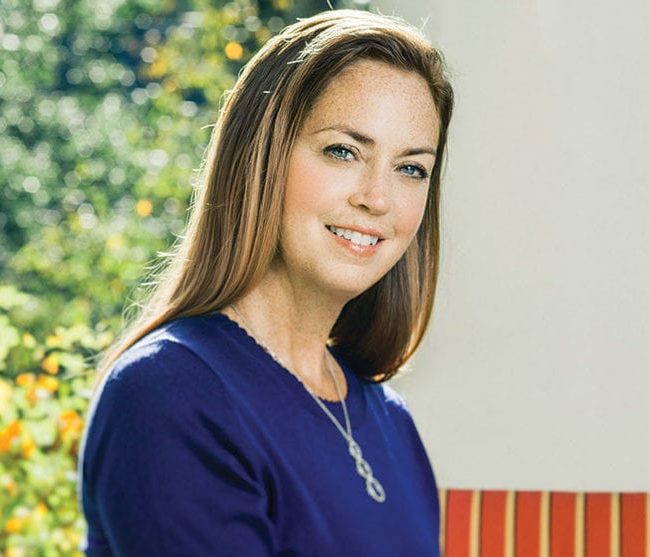A Conversation with Author, Marie Benedict
with Karen Floyd
![]() Raised in a traditional family, Marie Benedict followed the socially acceptable path and entered law school at the young age of twenty-one. She excelled as a successful litigator for over ten years at two of the country’s premier law firms–but, Marie knew this was not her true calling. The skills she learned on this path were invaluable and taught her how to artfully construct a narrative out of fact, a talent that led her to become a New York Times bestselling author. A masterful storyteller, Marie Benedict weaves together complex and fascinating true stories of women throughout history who have demonstrated uncompromising courage, bringing their contributions into the light of present-day.
Raised in a traditional family, Marie Benedict followed the socially acceptable path and entered law school at the young age of twenty-one. She excelled as a successful litigator for over ten years at two of the country’s premier law firms–but, Marie knew this was not her true calling. The skills she learned on this path were invaluable and taught her how to artfully construct a narrative out of fact, a talent that led her to become a New York Times bestselling author. A masterful storyteller, Marie Benedict weaves together complex and fascinating true stories of women throughout history who have demonstrated uncompromising courage, bringing their contributions into the light of present-day.
I was recently asked why we created ELYSIAN and what was the publication’s purpose. I explained that our mission is to show women there is no one path in life’s journey, and sometimes, it means we take the road less traveled. I love your work Marie. Whether Carnegie’s Maid, The Other Woman in the Room, The Other Einstein and now, Lady Clementine, your books are about women who have ascended, survived and even thrived in complicated situations, often, not of their making. They are all brilliant characters, caught in exceptional and challenging webs of life, and each finds her unique path.
I love your mission. We are basically the same person separated at birth.
Whether Clara Kelly (Andrew Carnegie’s maid), Mileva Marica (a brilliant scientist and Albert Einstein’s first wife), Hedy Keisler (known as the famous actress Hedy Lamarr), and Lady Clementine (Winston Churchill’s wife), your novels tell stories of uncompromising courage and perseverance despite heartache and trials.
Thank you so much for reading these stories. Your take is exactly right. I feel in some ways, these women’s stories are all our stories, which is why I tell them.
Are your characters “self-actualized” despite the circumstances life dealt? Is there a lesson here?
Several years ago, there was a wonderful publication called More Magazine, and it had a section called Second Acts about women. I loved that section because it was about reinventing ourselves as women. And part of reinvention is listening to who we are to begin with or circling back to our original selves, and in some ways, that is what my characters do.
I am really proud of you. I think your career is on an amazing trajectory. And with your recent novel, Lady Clementine, you have achieved a long-deserved recognition and therefore success.
I hope so. It’s an honor to tell these women’s stories, and I feel an enormous responsibility to them, to make sure that a wide audience knows about their contributions.
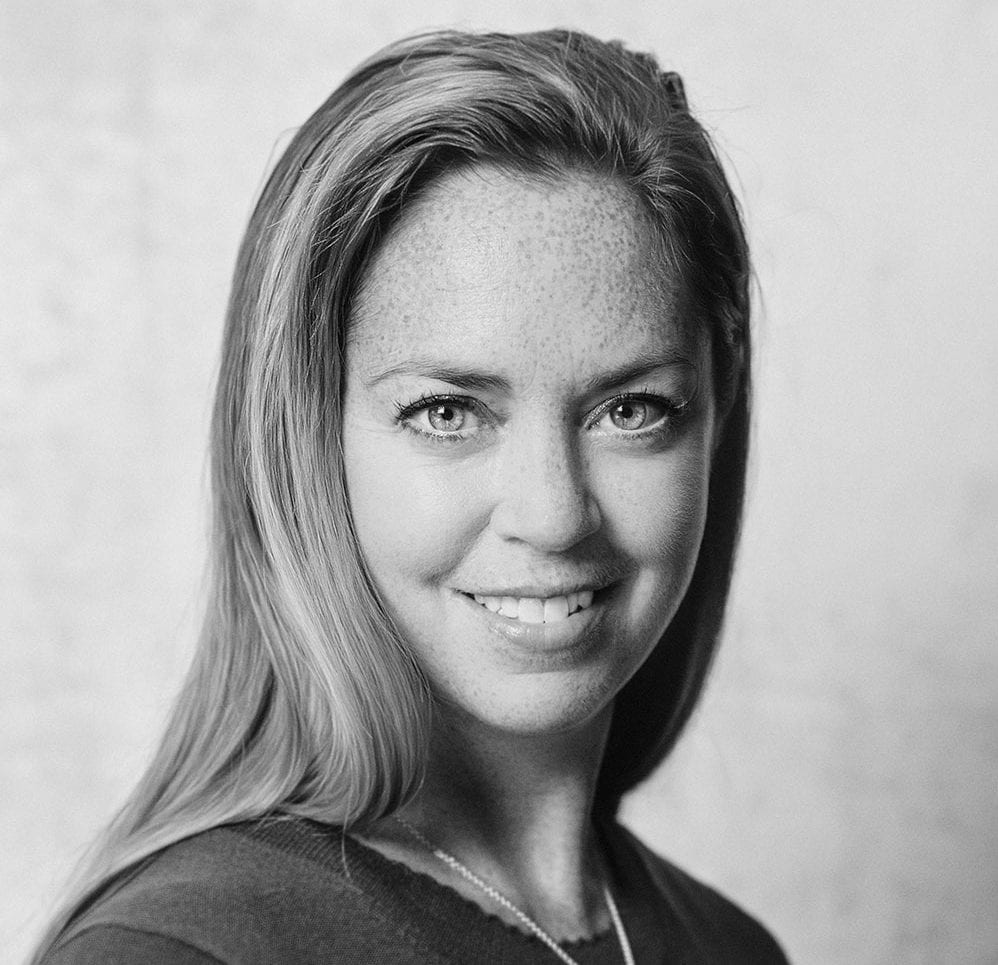
New York Times and USA Today bestselling author of hidden historical stories of women to reveal their contributions; Former lawyer for over ten years at two of the country’s premier law firms; Library Reads Hall of Fame Author.
What advice would you give your younger self?
I would tell my younger self that you are smarter than you think, and you are better than you know. I would tell my younger self that you are brave. Harness the power that bravery gives you, and do the things that are hard for you. When I was 21 years old, I entered law school, having gone straight from college where I was a history major. Everyone asked me, “What are you going to do with a degree in history?” So, I followed the socially acceptable path of going to law school. I was good at law, excelled and began a legal career in New York City where I was hired by one of the biggest law firms in the country. My success continued as I climbed that ladder, but I was never happy. I knew it was not what I was called to do. To find my calling, I had to circle back to my middle school and high school years and the thing I was passionate about as a much younger woman. I would tell that young woman, my younger self that was climbing the corporate ladder, to listen to her younger self. You do not have to follow a path that someone else sets for you. When your younger self tells you that you can forge a brand-new path retelling stories about historical women and inspiring other women to reclaim their own power and their own path, listen to her. You can do it. I feel like I had to circle through that period of my life to learn that lesson. But gosh, I wish I could fast forward through those years as a lawyer. Eleven (11) years as a lawyer is like living through dog years; it felt like seventy-seven years. It felt like an eternity for me.
You were a litigator?
I was. I was a commercial litigator for two of the country’s largest law firms, and then I went in-house to a Fortune 500 company, and I ran their large-scale commercial litigation. I kept shifting in that world hoping to find a fit between my interests and my skill set. I certainly learned a lot as a lawyer. I learned how to advocate, and I learned how to construct a narrative based on the facts, all the skills I use today. But I was not using them for what I was meant to be doing. Inside, I knew that from an incredibly young age, but it took me a long time to act on it.
I am curious about your personal life. Do you have any siblings?
I do. I am the oldest of six with 14 years between us. We were taught that we can do whatever we set our minds to doing. Consequently, we ended up with a huge variety of professions and passions, which is really fun.
What was your father’s profession?
My father, like his father, was a lawyer. When I finished college as a history major, everyone was asking me what I would do with that degree. There was a societal voice that was saying women should try out law school. Part of the draw came from thinking about my own father and grandfather and the work that they had done. My grandfather had been a town attorney in the small town in Pennsylvania, and my father was an attorney in Pittsburgh until he eventually became a commercial real estate developer and switched over to the business side.
Did your mother work?
My mother did not work outside of the home. I think for her, having six kids was working enough.
Do you think it odd that your father raised very independent, self-actualized women, and yet, your mother was a traditional homemaker? Please do not get me wrong, being a homemaker is the most difficult, but just the dichotomy between his wife and daughter . . .
Absolutely. I was just talking to one of my sisters about that the other day. My sisters have very demanding careers. One of my sisters is a senior executive at Instagram/Facebook, and another is a midwife in charge of education for a national organization. Despite their having seemingly traditional roles, my parents were able to impart the message that, whatever path you chose, whether it was a homemaker, which is incredibly demanding, going out into the world or whether it’s doing both . . . those are paths that are available to you. It is interesting because what we were told was not exactly what we saw, right? We saw a much more traditional role model. Yet somehow that message resounded in each of us. We went after the same goal, just a little differently. Parenting and working are different from the model and the message that I grew up with.
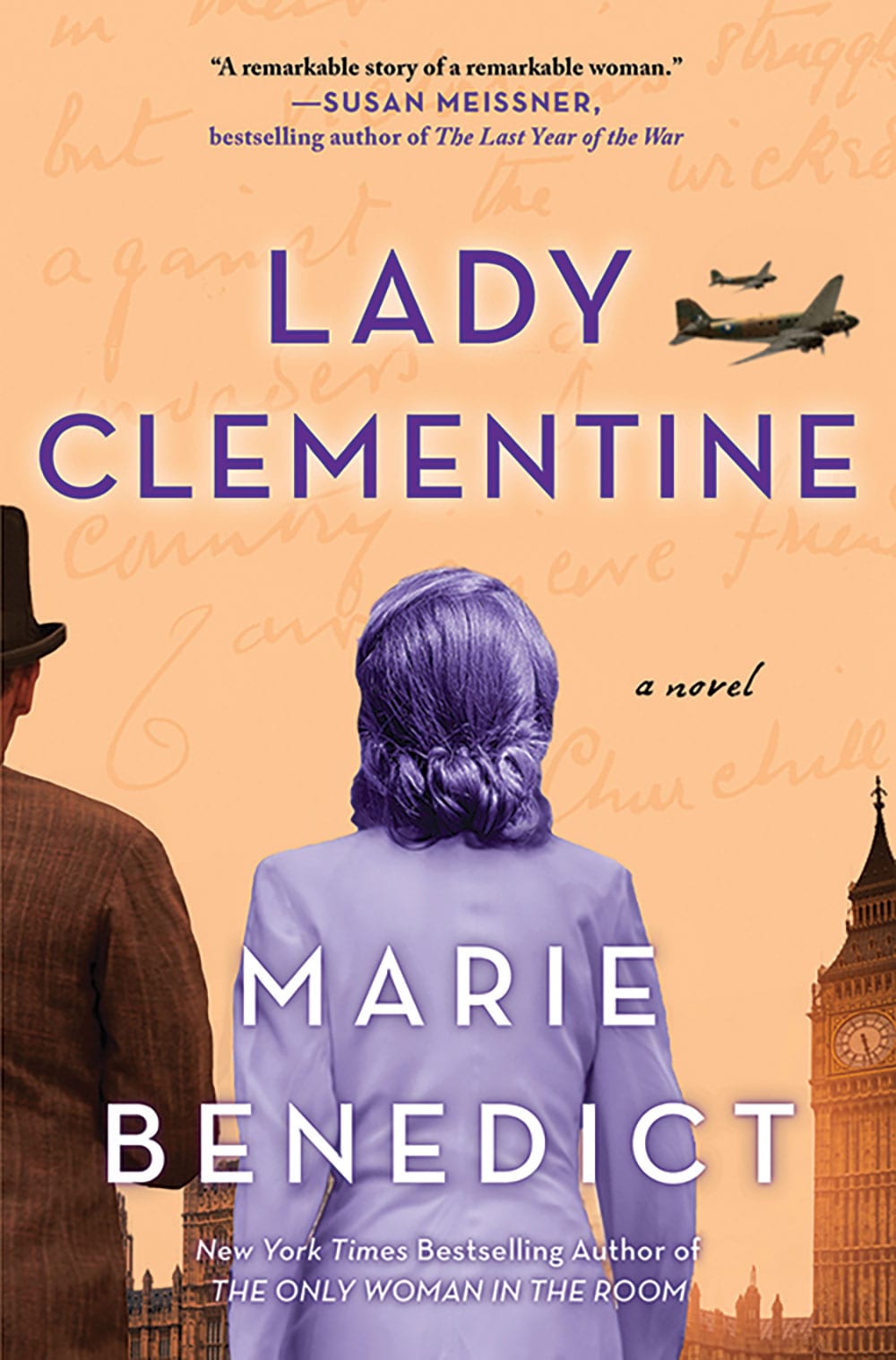
Is it attainable to do both?
This is a question I’ve been discussing with groups of friends that have really materialized in the pandemic, several groups of friends from college and high school and then friendships I have developed over the years working. The message that we received when we were in college and law school and starting work was that women could have it all. We could work and parent and have a family. It is true you can, but the message and the reality are quite different things. I think each of my friends who are doing both, working and raising their families, are finding different ways to cross that divide. The message wasn’t delivered as evenly I think for the male population. The infrastructure, both in our society and in our workplaces, has not caught up with the message that we received. It has been really interesting to watch how differently women in my groups deal with this issue of having it all.
Do you think that it led to some disappointment?
Oh, absolutely. One of my friends is the president of a Fortune 500 company, and one is a stay-at-home mom. While we forged our own paths, everybody has struggled with this issue. Now, with both partners working from home, families are getting to see the responsibilities women shoulder. Everyone is forced to reevaluate and pitch in. I am seeing that among my friends as well.
How do you do it?
I am a masterful multitasker, but if I was not capable of that, I could not manage. Just take a day in the life of the pandemic: I answer my sons’ virtual schooling questions, then turn my attention to editing a paragraph in a book that I have coming out, and then take calls, and then take an interview… all within the space of an hour. Take one hat off, put the next hat on, one right after the other. Not missing a beat. If I could not wear all those hats, I would not be able to do it.
What is the qualifier for success in this balancing act?
For me, there are so many factors in play. In part, I think it is the career path you choose. In part, it is the support you have at home and with the care-taking of your children. Your ability to multi-task can come into play. I have a friend who is an executive at a healthcare company. She acknowledged she is not great at multitasking and is really struggling in this pandemic because she is having to wear different hats, one right after another. She is better off going into an office environment, very structured, wearing one hat, then taking it off coming home and just being a mother a hundred percent. For me, that was not the right path. I could not bear to be separated from my children for those long stretches and not have as much control over my schedule to be available. My husband has a job where he works long hours as well. I wanted one of us to be able to be more physically present for our family while pursuing our careers.
Where did you meet your husband?
I met my husband in the Hong Kong Airport passport control line. He was going there for a year to work for a start-up tech company, and I was going to visit my brother who was living there. Ironically, we were both on the same flight from New York City. We happened to be on the upper deck of a 747 where he noticed me. I first recall seeing him when we were standing next to each other in the passport control line and we just started talking.
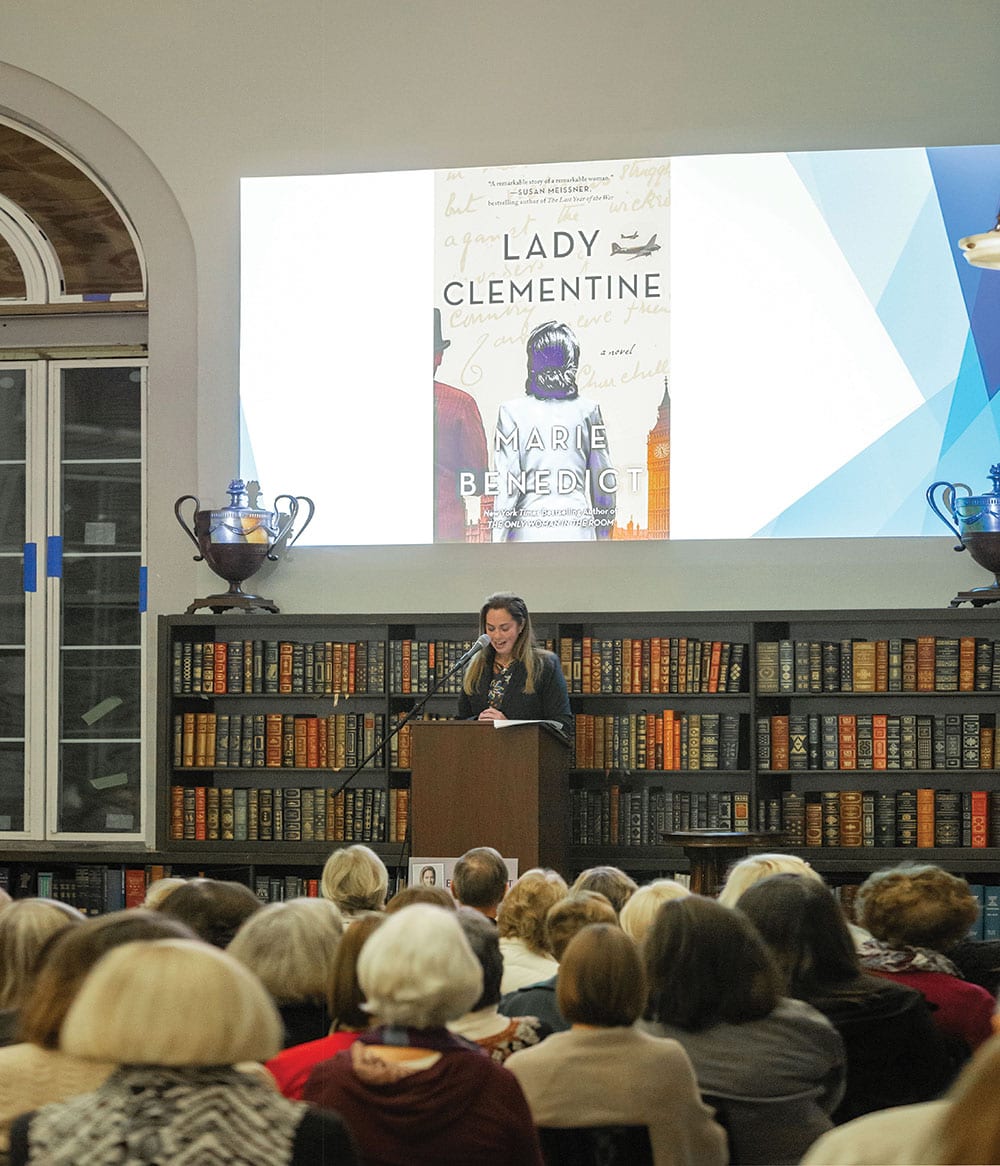
Marie speaking at The Charleston Library Society where the pre-publication event was held to release her latest book, Lady Clementine.
You have two children?
Yes. We have two boys.
How are you able to get into a “creative zone” needed for writing and then come out and balance that more traditional calling of motherhood?
I wish I had a formula because I think I could sell it! I try to take advantage of a good chunk of time when my children are in school from 9:00 until 3:00. It is my writing time. I have an office in my house with all my research materials. I tap into that historic world and that particular women’s world. But that is not to say that I am not constantly shifting back and forth taking phone calls about kids’ schedules or doing some random thing like taking a questionnaire for one of their teachers. My kids are 10 and 13, and I am still trying to put boundaries around those other obligations.
Do you ever feel like you just have to get away…to escape?
I am lucky because as my books have become more and more successful, I am invited to do more and more speaking engagements. And while it is work, it is also an escape.
Do you like that?
I do. I actually love to speak to groups. As I was telling a group earlier today; writing is an isolated activity. It is just me, my computer, my imagination, and my research material. Yet one of my missions is to connect my stories with modern readers, both women, and men. Effectively, I am writing to people that I cannot see and cannot hear most of the time. To actually have the experience of talking with readers about my work and seeing how it speaks to them, how it reverberates and really reaches them in their modern-day lives, is especially important. So, I do love travel, but it is hard for the family, and I dislike being away from them.
Tell me about your recently published and lauded book, Lady Clementine.
The book is the story of Clementine Churchill, Winston Churchill’s wife. I have an antenna for these hidden women and I discovered her as I was doing the research for the book The Only Woman in the Room, which is about Hedy Lamarr, a Hollywood star and Jewish refugee, and the work she did to ultimately lead to the creation of Wi-Fi. I was deep in the research about World War II, and of course, Winston Churchill is incredibly iconic, with that cigar and the hat and all his supposed contributions to the war. And as I often do, I started to wonder, “Where are the women?” I knew he had been married for over three decades. Where was his wife? What is she doing through all these world-changing events? And as I went down the rabbit hole, where I like to live to research the
past, I uncovered all the work that he was involved in from World War I through World War II. She was there beside him every step of the way. I discovered she was a politician’s wife, a prime minister’s wife in a way that had never been envisioned before and probably has never happened since. She was his advisor. She was his moral compass. She was his confidant. She was his support. She was everything. And she also had her own endeavors, which are very often attributed to him.
Sir Winston Churchill’s love of art stemmed from …
From her. In the 1930s, after World War I, he really receded from public life. He was still writing and involved in his own way. In particular, he sounded the bell for the rise of Hitler and for people to be on the lookout. However, people did not want to hear that after the devastation of World War I. He was lost, and she kind of steered him in the direction of another outlet he had developed earlier, which became his painting. She was this constant, I should say, graceful force in his life.
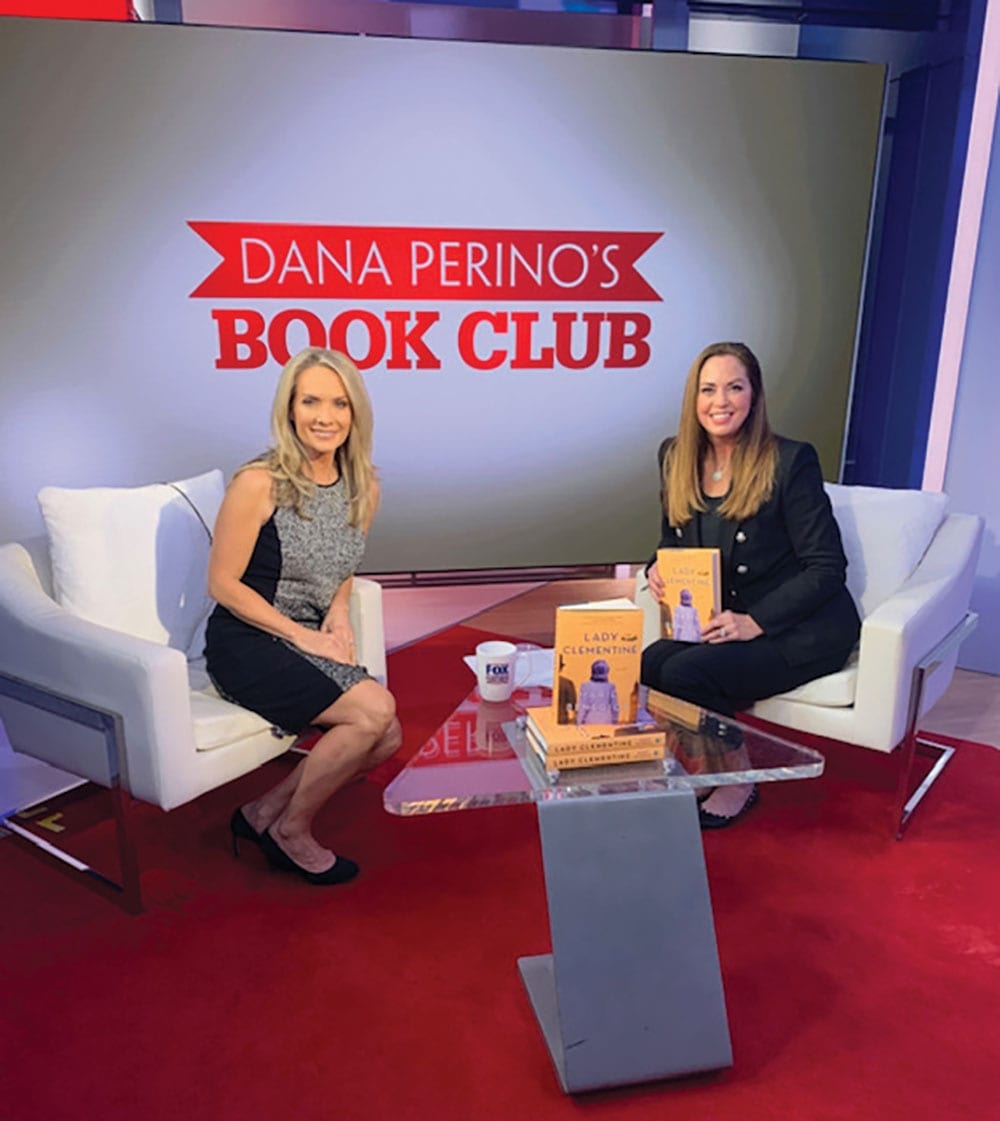
Beautiful too.
Gorgeous, refined, brilliant and firm. She had her own set of convictions. Contrary to the norms of her social set, she was a suffragette and an advocate for any cause having to do with citizens’ rights. At the same time, she was always watchful for him. Guiding him and supporting him in all his decision-making and doing it in the most graceful way which, again, was the antithesis of Winston and his sort of bombastic personality.
Never, never, never quit.
Never. The world would be a different place without him, but at the same time, it required a lighter touch as well, which she had.
You have three books in the works. Can you give us a quick overview?
Around July 4th, I have a novella releasing on Audible. If you’re familiar with Audible audiobooks, they do a program in which they release a free audible original novella to members, which is available for purchase afterward. This novella is called Agent 355 and you’ll see why the release is tied to July 4th. It is the story of the only female spy in George Washington’s spy ring and explores the work that she did behind the scenes. She was integral to winning the American Revolution and also to topple Benedict Arnold’s treason.
To purchase Agent 355?
You have to go on Audible to order it.
The second book?
In January 2021, I have a book coming out called The Mystery of Mrs. Christie, the story of Agatha Christie. As with all the women I write about, I see her as a heroine with incredible contributions. This is about her actual disappearance for 11 days when she was a relatively young woman in her thirties. She was on the rise as a novelist and disappeared in mysterious circumstances. Her car was found running on the edge of a cliff and the largest manhunt in England’s history was conducted to find her. Then she mysteriously reappeared on the 11th day. This is the story of what I think happened to her during those days and how it was transformative in her becoming this powerful woman writer. I believe it is an incredible story of a woman rewriting herself back into history, reclaiming her own power. It is written like a mystery novel, so it’s a little bit different.
That is a very ambitious schedule. What about the third book?
In June of 2021, I have a co-written book coming out called the Personal Librarian. My co-writer is Victoria Christopher Murray. This is the story of the famous financier, JP Morgan who has an incredible institution in New York City. called the Morgan Library. It is also a museum and has one of the world’s best collections of ancient manuscripts and books. JP Morgan hired Belle Da Costa Greene in the early 1900s to become its librarian and curator. She became the most successful career woman in the world during the decades of her running that institution. But the only way she was able to have the success that she did was by hiding her identity as an African American woman. She was very fair, so she passed as being Caucasian. She came from a lineage of people who were very educated, very successful. Her father was the first African American to graduate from Harvard. He was an advocate for the Civil Rights Act of 1875, which if it had not been overturned by the Supreme Court in 1890s would have meant we never had segregation. She came from a lineage of people who were really determined to advocate for equality. Because those efforts had failed, she had to live as a white woman to succeed.
Is this the first time that you have co-authored?
Yes, and it’s been an amazing experience. We are in the editing stage right now. We co-wrote it, just met with our editor and now are in the editing phase. We literally talk to each other every day and go through it, chapter by chapter. It has been rewarding both in terms of growth as a writer and as a person considering issues about race. To study how it all started and how it has evolved over time with a woman of color and to see her perspective—and to really carve together this powerful woman who had a foot in both worlds—has been a gift.
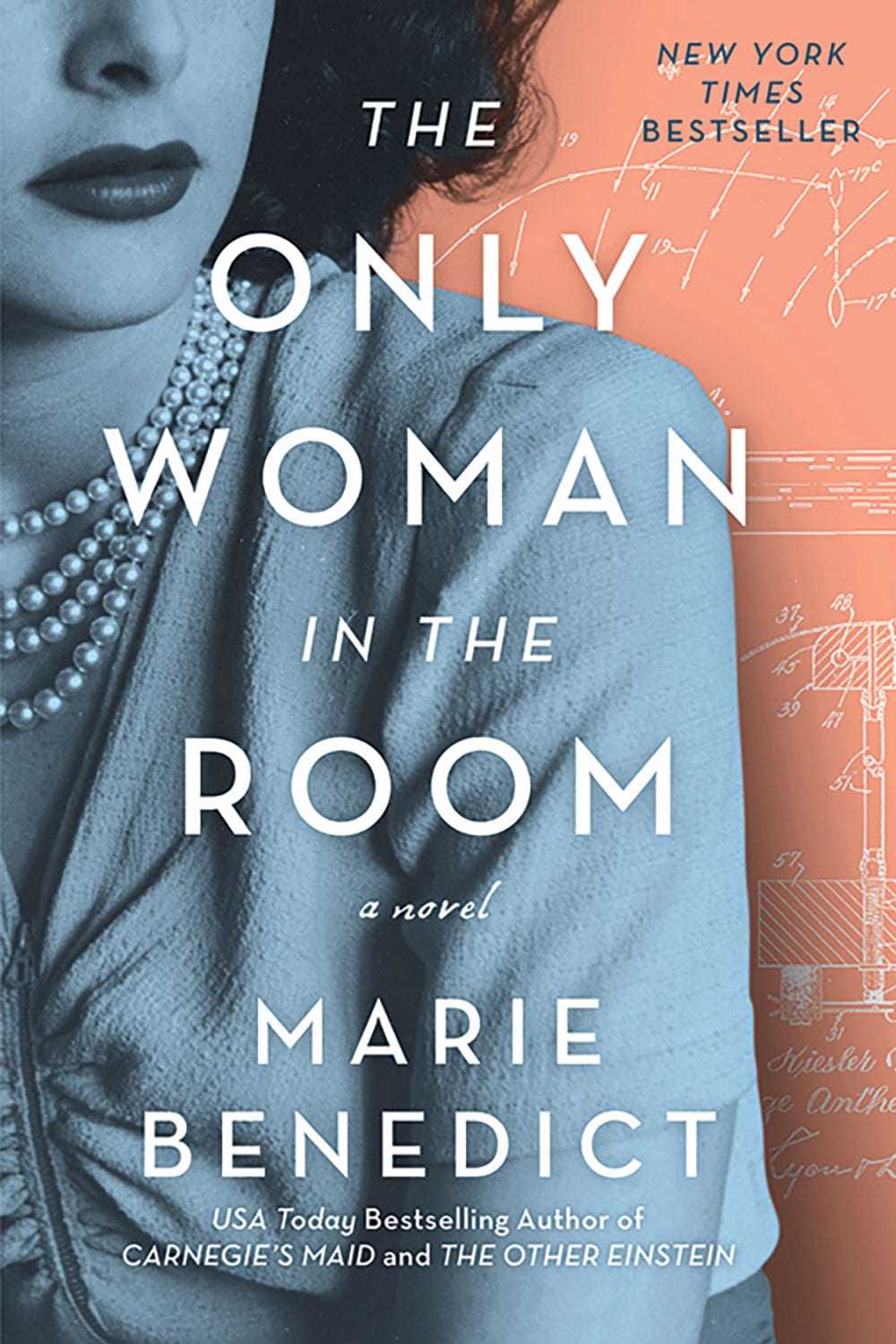
How did you two find each other?
It began when I knew I wanted to write about Belle Da Costa Greene, who was on the long list of women I want to write books about. I knew I wanted to write her story with a woman of color because even though I write fiction and have imagined myself as all sorts of women, I wanted to include the voice of a woman of color along in my journey. I read a wonderful book that my co-writer Victoria Christopher Murray wrote, called Stand Your Ground, which is the story of the killing of a young black boy. The story is told from the perspective of the boy’s mother and from the wife of the white police officer. The way in which she so compassionately looked at this really difficult issue from different points of view really captured my imagination. I felt like she was looking for answers and perspectives and trying to create a fresh lens through which to look at these issues, much like I am. I just knew she’d be a great partner for this project, and the experience has exceeded my expectation.
Marie, who is your reader?
My readers come from a variety of backgrounds but are predominantly women. I think women are interested in identifying, recognizing, and owning the contributions that they have made. They do not want to be marginalized anymore. They want to look at the world around them and say, “Hey, a woman made that,” or, “I only have this right today because a woman fought for it.” I think that is very appealing. That said, I wish I had more male readers because my overarching mission is to really change the lens through which we look at the past and then shift that lens to the present and the future. The more men that read those stories, the more beneficial it will be for all of us. Back to the women, many who read my books do so in group settings, like book clubs, because my books lend themselves to a lot of textured, nuanced, sometimes argumentative conversations. My reader is a variety of ages, from women in their twenties and thirties into their eighties and nineties. I love to hear the different reactions. The reaction I hear from an 80-year-old about Lady Clementine is quite different from a woman who’s in her thirties because of their life experiences. For example, the older women who are reading the story of Lady Clementine are happy that a woman is recognized for supporting her successful political man. Those women know how much work they did to support their partners’ success and appreciate the acknowledgment of those efforts they’ll find in Lady Clementine. Whereas a woman in her thirties might say, that is terrible. She should have been able to run for office. Both perspectives are true. It is possible for you to see the injustice in Clementine Churchill’s position and also acknowledge the incredible contribution she made. That is what I love about the broad age range of women who are reading my books. But, I would say my readers are mostly women.
If you can ask God one question, what would it be?
How can I best fulfill and support my purpose? This question is something I ask myself every day. I would love to know how I am doing and what I could do better.
This interview was first published on October 19th, 2020.

